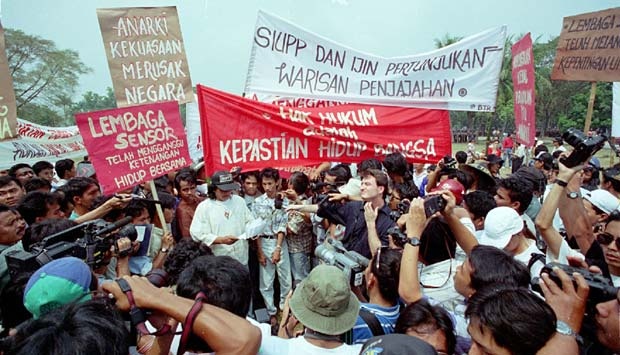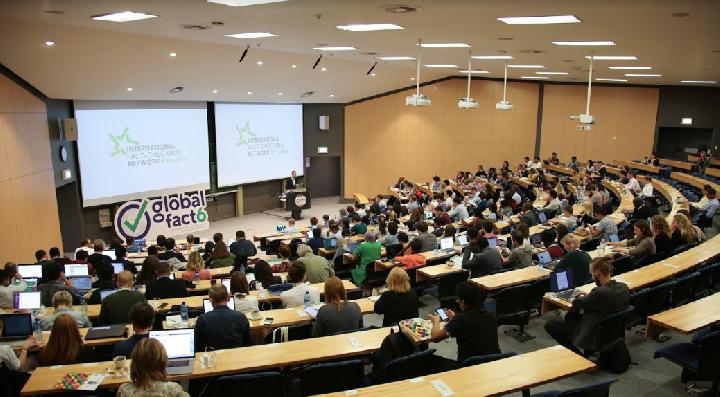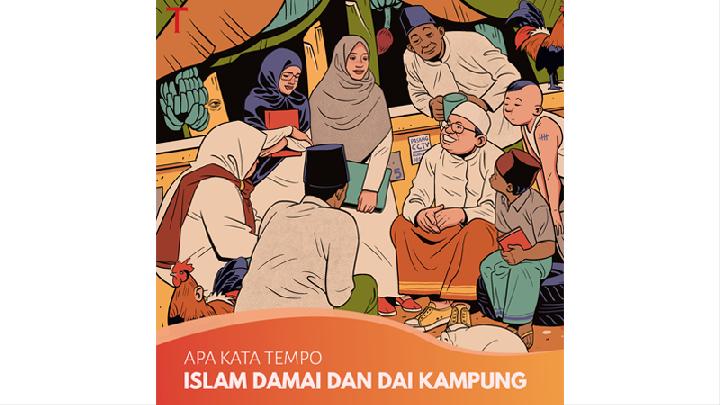Failed by Democracy, 23 Years Remembering The Tempo Banning
21 June 2017 20:00 WIB

TEMPO.CO, Jakarta - Exactly today on June 21, 1994, President Soeharto’s administration officially banned the publishing of Tempo magazine, Editor, and Detik. This incident was considered part of a gloomy past for Indonesian news publications.
The memory of the incident that took place 23 years ago is still deeply etched in the memory of the former Editor in Chief of Tempo, Bambang Harymurti. He was in the United States when the news of the ban broke out.
Read also: Behind the Tempo Banning (Indonesian language)
“I was saddened and angered at the same time,” said Bambang on Wednesday, June 21.
BHM, as Bambang was popularly known to be called, recalled when several employees were visibly mourning. He travelled back to Indonesia not long after, together with Tempo founder, Goenawan Mohamad, they both persisted on refusing to stay silent and chose to respond to the government’s heavily arbitrary attitude.
The office at the time was in chaos. BHM could still remember when Goenawan Mohamad gave a speech to encourage fellow co-workers following the ban.
“We may be defeated, but we will not be subdued.”
Many considered that when the government bans a news publication then it must surrender without resistance. But it was the exact opposite that BHM voiced out loud.
“We took it to court when others never even fought back.” Said BHM.
BHM was understandably surprised by the ban, considering that not long before that he met with the Coordinating Minister of Political and Security Affairs, Soesilo Soedarman, who blatantly said that the government won’t ban Tempo.
BHM argues that banning a news publication is tightly connected to the freedom of the press. He considers it as a failure of democracy.
“Democracy fails by banning the press,” BHM said.
Tempo was banned for a headline piece which criticized the purchase of 39 used war vessels from East German by the Minister of Technology and research, B.J. Habibie.
Tempo was brought back from the dead following the resignation of Soeharto from the Presidency and was replaced by B.J. Habibie on October 6, 1998.
An activist from KAMI, and Indonesian college student alliance from 1966, Rahman Tolleng says that the banning of Tempo showed how critical the news publication was.
“They can be considered as a press that survived being critical,” said Rahman Tolleng.
He asserted how Tempo was in the front line of the resistance against the government’s media ban.
Although, he has criticized Tempo for producing one sided news stories during the 2014 presidential election.
Rahman could recall the sudden change of character.
“Tempo was obviously taking a side, it was so one sided that Tempo disavowed its critical function,” Rahman said.
Despite the short lived change of character, Rahman thinks that Tempo has returned to its roots of producing critical news reports. He also urged Tempo to not return to the style of news produced during the 2014 presidential election.
DANANG FIRMANTO























